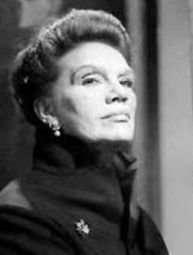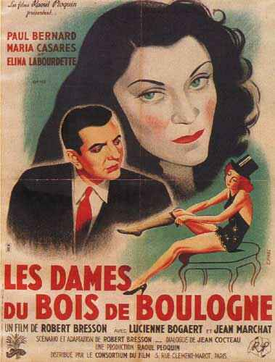Related Research Articles

The Plague is a 1947 absurdist novel by Albert Camus. It tells the story from the point of view of a narrator in the midst of a plague sweeping the French Algerian city of Oran. The narrator remains unknown until the beginning of the last chapter. The novel presents a snapshot into life in Oran as seen through the author's distinctive absurdist point of view.
A courtesy title is a form of address and/or reference in systems of nobility used for children, former wives and other close relatives of a peer, as well as certain officials such as some judges and members of the Scottish gentry. These styles are used "by courtesy" in the sense that persons referred to by these titles do not in law hold the substantive title. There are several different kinds of courtesy titles in the British peerage system.

Elisabeth Ida Marie Flickenschildt was a German actress, producer and author. She appeared in dozens of German language films and television productions between 1935 and 1976.

Les Dames du Bois de Boulogne is a 1945 French film directed by Robert Bresson. It is a modern adaptation of the story of Madame de La Pommeraye from Denis Diderot's Jacques le fataliste (1796) that tells the tale of a man who is tricked into marrying a prostitute.

Camille is a 1917 American silent film based on the play adaptation of La Dame aux Camélias by Alexandre Dumas, fils, first published in French as a novel in 1848 and as a play in 1852. Adapted for the screen by Adrian Johnson, Camille was directed by J. Gordon Edwards and starred Theda Bara as Camille and Albert Roscoe as her lover, Armand.

Lucy Doraine was a Hungarian film actress of the silent era. Born as Ilona Kovács in Budapest, she appeared in more than 20 films between 1918 and 1931. She was married to film director Michael Curtiz from 1918 to 1923. She died in Los Angeles, California, aged 91.

Heinz Strunk, legal name Mathias Halfpape is a German novelist, humorist musician, actor and member of Hamburg-based comedy trio Studio Braun. Strunk’s comedy ranges from goofy prank calls to biting political and cultural satire, often involving music. Strunk plays woodwind and keyboard instruments.

Lady!! is a Japanese manga series written and illustrated by Youko Hanabusa. It was published by Akita Shoten in the shōjo manga magazine Hitomi Comics from 1987 to 1993 and collected in 12 tankoubon volumes. The manga series was adapted into two anime television series, entitled, Lady Lady!! and its sequel Hello! Lady Lynn, produced by Toei Animation.
When the Viking chieftain Rollo obtained the territories via the Treaty of Saint-Clair-sur-Epte which would later make up Normandy, he distributed them as estates among his main supporters. Among these lands were the seigneurie of Harcourt, near Brionne, and the county of Pont-Audemer, both of which Rollo granted to Bernard the Dane, ancestor of the lords (seigneurs) of Harcourt. he first to use Harcourt as a name, however, was Anquetil d'Harcourt at the start of the 11th century.

Sins is a 1986 CBS television miniseries starring Joan Collins. An adaptation of the 1982 novel of the same name by Judith Gould, it is the story of a woman who survives the horrors of the Nazi occupation of France and endures a succession of challenges as she rises in the world of fashion.

Hans Söhnker was a German film actor. He appeared in more than 100 films between 1933 and 1980. He was born in Kiel, Germany and died in West Berlin, West Germany.

Leopoldine Konstantin was an Austrian actress. She played in Frank Wedekind's Spring Awakening (1907), Shakespeare's Romeo and Juliet (1907), A Winter's Tale (1908), and A Midsummer Night's Dream (1910).
Hanımın Çiftliği is a Turkish drama series. It is third adaptation of Orhan Kemal's novel Hanımın Çiftliği. It has been very praised and won numerous awards.

Mirror in the Mirror: A Labyrinth is a collection of short stories by Michael Ende originally published in German 1984 with the title Der Spiegel im Spiegel. All stories in the book have their own protagonists, but are related to each other by the use of literary leitmotivs. None of the stories has its own title. Ende wrote the 30 short stories - according to the dedication at the beginning of the book - for his father Edgar Ende, whose artistic work inspired the short stories.

Axel Eugen Alexander von Oesterreich, better known as Axel von Ambesser, was a German playwright, actor and film director.

Sonja Alice Selma Toni Ziemann was a German film and television actress. In the 1950s, she was among Germany's most prominent actresses, awarded the 1950 Bambi for appearing, together with Rudolf Prack, in Schwarzwaldmädel. From the 1960s, she turned to more serious acting in international films such as The Secret Ways. She played in several anti-war films such as Strafbataillon 999. She also appeared on stage and in television.

"Der Handschuh" is a ballad by Friedrich Schiller, written in 1797, the year of his friendly ballad competition with Goethe. Other ballads written that year include Schiller's "Der Gang nach dem Eisenhammer", "Die Kraniche des Ibykus", "Der Ring des Polykrates", "Ritter Toggenburg", "Der Taucher", and Goethe's "Die Braut von Korinth", "Der Gott und die Bajadere", "Der Schatzgräber (Goethe)", "The Sorcerer's Apprentice".

Der Handschuh is a composition by Graham Waterhouse. He wrote the setting of Friedrich Schiller's ballad for cello and speaking voice in 2005. It was published in 2007 in Heinrichshofen's Verlag.

The Fifth Cord is a 1971 Italian giallo film directed by Luigi Bazzoni. The film's Italian title reprises Dario Argento's practice of using animals in the titles of his thriller films. The film is based on a novel with the same name by D.M. Devine.
References
- ↑ "Die Dame mit dem schwarzen Handschuh". Film Portal. Retrieved 30 March 2019.